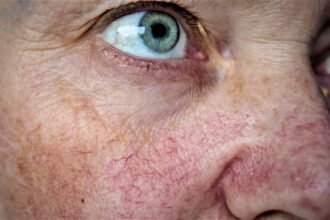A national survey of 7,288 physicians (26.7 percent participation rate) finds that 45.8 percent of physicians reported at least one symptom of burnout, according to a report published Online First by Archives of Internal Medicine, a JAMA Network publication.
The Mayo Clinic today released the finding of a study on physician burnout. Not surprisingly (if you are a physician) the stunning findings, perhaps to the public, is that over 30% of physicians in general have documented burnout (according to psychiatric standards), and the highest rates of over 50% were among emergency room,family doctors (primary care physicians) and the internal medicine specialty.
Symptoms and signs include depersonalization, lack of involvement with patients, insomnia, loss of appetite and other signs of clinical depression. It was also found that over 50% of physicians are considering leaving clinical practice, early retirement or part-time medical practices.
This is occuring at a time when patient load will increase by about 25% due to health reform, which includes increasing bureaucracy not directly connected with patient care.
Most physicians recognize their own burnout symptoms and categorize it as depression. It however has other signals which differentiate it from clinical depression. It mimics post traumatic stress disease, seen in the military. The duration of chronic stress exacerbates signs of burnout.
There are physiologic and biochemical changes which occur during burnout, much like clinical depression. It is well known that anxiety creates the release of circulating hormones such as norepinephrine and corticosteroids as well as changes in neuro-mediators in the brain, such serotonin and inhibitors.
The obvious outcome of this is markedly reduced physician efficiency, increased errors, and disability, either acute or chronic.
The figures reveal how health care is impacted by these numbers.
A lack of control about the future and working conditions in many professions reveals that these factors also lead to apathy and burnout.
In medicine this is apparent. Most physicians know that physicians have little to do with the operations of the business of medicine, health insurance reimbursement, regulations, medicare and medicaid regulations.and find a greater and greater percentage of work time involves non- clinical work.
When queried physicians in the majority enjoy charitable care, however cannot individually support it in the present setting of medicine in the United States. While medicare payment have a due process for adjudication of disputed or rejected claims, often times state medi-caid plans do not have a mechanism which is usable to dispute disagreements. These factors contribute much to the uninsured challenge.

For providers time is money just as it is for all employers/employees. There is a limit as to how long a medical business can pursue these claims. It is also possible to seek legal relief, however the cost of this is prohibitive for small groups. Some hospitals or larger groups can afford the legal fees to pursue this course, and occassionally successful. While a patient can be sent to collections, how does one send medicaid or medicare to collections. In fact the provider is effectively extorted to agree to the rules present in the credentialling process. It’s one thing to say okay I am going to extend ‘credit’ or discounted rates by choice, but another to coerced or mandated discounts. In fact most insurers have a disclaimer that their rates can be altered at anytime. The provider is free to disenroll or accept the changes. The provider has an ongoing ethical and legal obligation to continue care or be sued for abandonment if continuing care is not arranged.
While patient care can be stressful, the training process usually deals with clinical issues that cause stress. It is all of the above collateral challenges that cause burnout. Long hours, lack of recognition and the blatant disregard for physicians by insurers. Rarely does an insurer send a note of appreciation to their panels for ‘good care’ for the companies insured.
The fact that almost 1 in 2 U.S. physicians has symptoms of burnout implies that the origins of this problem are rooted in the environment and care delivery system rather than in the personal characteristics of a few susceptible individuals,” the authors conclude. “Policy makers and health care organizations must address the problem of physician burnout for the sake of physicians and their patients.”






